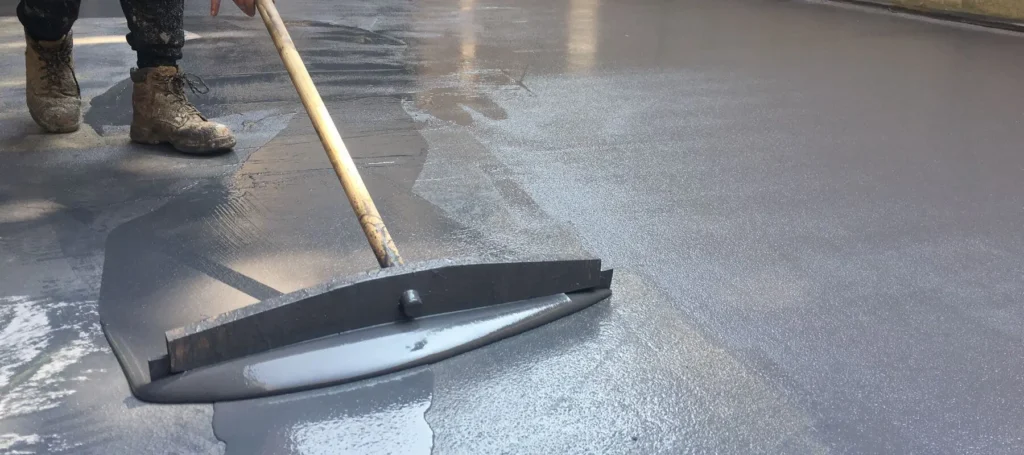Waterproofing is one of the most important investments you can make for your property, especially if you live in areas with high rainfall, aging foundations, or seasonal flooding. Whether you’re dealing with a damp basement, foundation cracks, or mold buildup, professional waterproofing protects your home from serious damage and costly repairs.
But with so many companies offering waterproofing services, how do you know which one to trust?
This guide will walk you through everything you need to know to choose the best waterproofing services for your home or building, including what to look for, questions to ask, and red flags to avoid.
Why Waterproofing Matters
Waterproofing isn’t just about convenience; it’s about protecting your investment.
Unchecked water intrusion can lead to:
- Mold and mildew growth
- Cracked foundations and walls
- Electrical hazards
- Structural instability
- Decreased property value
A professional waterproofing contractor ensures your home stays dry, safe, and structurally sound for years to come.
1. Understand the Type of Waterproofing You Need
Different problems require different solutions. Here are the most common types of waterproofing services:
Interior Waterproofing
- Drainage systems (e.g., French drains)
- Sump pump installation
- Vapor barriers
- Basement dehumidifiers
Exterior Waterproofing
- Foundation excavation and sealing
- Exterior drainage systems
- Waterproof coatings or membranes
Foundation Crack Repair
- Epoxy injection
- Polyurethane foam injection
- Structural patching
When speaking with a contractor, ask them to evaluate your home and recommend the most appropriate method based on your specific situation.
2. Look for Experience & Specialization
Waterproofing is not a general handyman job. Always choose a contractor who:
- Specializes in basement and foundation waterproofing
- Has at least 5 years of experience
- Understands your local building codes and soil conditions
Tip: Companies that offer every home service under the sun (plumbing, HVAC, landscaping, waterproofing) often lack the depth of expertise needed for serious waterproofing work.
3. Check Licenses, Insurance & Certifications
Any reputable waterproofing company should:
- Be licensed in your state or city
- Carry liability and workers’ comp insurance
- Be trained or certified by waterproofing material manufacturers
Don’t be afraid to ask for proof. A trustworthy company will never hesitate to provide documentation.
4. Read Reviews & Ask for References
Search for reviews on:
- Yelp
- HomeAdvisor
- Angi
What you’re looking for:
- Consistently high ratings
- Mention of professionalism, punctuality, and long-term results
- How they handled issues or callbacks
Also, ask for 2–3 references from past clients in your area. Reach out to them directly if you want to verify the quality of the work.
5. Ask About Warranties
A good waterproofing contractor should offer a written warranty, ideally transferable if you sell the property. Most warranties cover:
- Labor
- Materials
- Future water intrusion in the treated area
Beware of vague or overly short warranties (under 1 year) this could mean the contractor doesn’t trust their work.
6. Get a Detailed, Written Estimate
The estimate should include:
- Scope of work
- Materials being used
- Timeline
- Total cost
- Warranty terms
Avoid companies that pressure you into signing on the spot or refuse to give a written quote.
7. Compare More Than Just Price
Waterproofing is not the time to go with the cheapest option. Instead, compare:
| Criteria | Why It Matters |
| Quality of Materials | Better products = longer-lasting results |
| Warranty Coverage | Shows contractor confidence |
| Reviews | Real-world proof of success |
| Experience | Reduces the risk of improper installation |
| Timeline | Some companies rush or cut corners |
Remember: cheap waterproofing done twice costs more than premium waterproofing done once.
8. Look for Local Experience
Hiring a waterproofing company that operates in your area (e.g., Newark, Brooklyn, Jersey City) ensures:
- Familiarity with local soil, weather, and flood risks
- Better understanding of municipal code
- Easier support if you need a warranty visit later
If possible, choose a company with a strong reputation across your city or region.
Common Red Flags to Avoid
- No physical office or online presence
- Demands full payment upfront
- Vague estimates or hand-written quotes
- Lack of reviews or testimonials
- Pressure sales tactics (“This offer is only good today!”)
Final Thoughts
Choosing the best waterproofing service is about doing your homework, asking the right questions, and trusting your gut. The right company will not only fix your current issue but also prevent future problems, saving you thousands in repairs and restoring your peace of mind.
FAQs: Choosing a Waterproofing Contractor
Q: How long does waterproofing usually take?
A: Interior waterproofing can take 1–3 days. Exterior work may take 3–7 days, depending on weather, excavation, and materials used.
Q: Can I waterproof my basement myself?
A: DIY methods (like sealing cracks) might help temporarily, but full waterproofing usually requires professional systems and tools.
Q: What is the average cost of waterproofing?
A: Interior systems range from $2,000–$8,000. Exterior work can range from $5,000–$15,000+, depending on scope and materials.
Q: Should I get interior or exterior waterproofing?
A: It depends on the source of the water issue. An inspection from a qualified contractor will determine the best solution.

